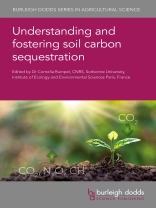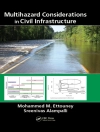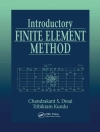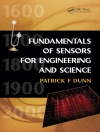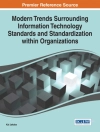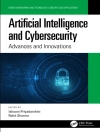- Highlights the increasing role of soils as an important and dynamic part of the global carbon cycle and their potential role in counteracting increasing atmospheric CO2 concentrations
- Explores key aspects of soil carbon sequestration in different environments and soil types
- Provides a comprehensive review of socioeconomic, legal and policy issues surrounding the adoption of soil carbon sequestration practices across the globe
Table des matières
1.Introduction: soil carbon sequestration – a process linking soils to humanity: C. Rumpel, CNRS, Sorbonne University, Institute of Ecology and Environmental Sciences Paris, France;
Part 1 Understanding carbon sequestration in soils
2.Mechanisms of soil organic carbon sequestration and implications for management: Ingrid Kögel-Knabner, Chair of Soil Science, TUM School of Life Sciences and Institute for Advanced Study, Technical University of Munich, Germany; Martin Wiesmeier, TUM School of Life Sciences, Technical University of Munich and Bavarian State Research Center for Agriculture, Institute for Organic Farming, Soil and Resource Management, Germany; and Stefanie Mayer, Chair of Soil Science, TUM School of Life Sciences, Germany;
3.Plant influences on soil organic carbon dynamics: Xiaojuan Feng, Institute of Botany, Chinese Academy of Sciences and College of Resources and Environment, University of the Chinese Academy of Sciences, China;
4.Biological basis of soil organic carbon sequestration: a complex set of interactive processes: Patrick Lavelle, Institute of Ecology and Environmental Sciences Paris, Sorbonne University, France;
5.Understanding soil organic carbon dynamics at larger scales: Sebastian Doetterl, ETH Zurich, Switzerland; Rose Abramoff, Oak Ridge National Laboratory, USA; Jean-Thomas Cornelis, University of British Columbia, Canada; Aline Frossard, Swiss Federal Institute for Forest, Snow and Landscape Research WSL, Switzerland; Peter Fiener, Institute of Geography, Augsburg University, Germany; Gina Garland, ETH Zurich and Soil Quality and Use Group, Agroscope, Switzerland; Michael Kaiser, University of Nebraska-Lincoln, USA; Moritz Laub, ETH Zurich, Switzerland; Sophie Opfergelt, Earth and Life Institute, UCLouvain, Belgium; Marijn Van de Broek and Sarah van den Broek, ETH Zurich, Switzerland; and Sophie F. von Fromm, ETH Zurich, Switzerland and Max Planck Institute for Biogeochemistry, Germany;
6.Benefits and trade-offs of soil organic carbon sequestration: C. Rumpel, CNRS, Sorbonne University, Institute for Ecology and Environmental Sciences Paris, France; B. Henry, Queensland University of Technology, Australia; C. Chenu, Agro Paris Tech, UMR Ecosys INRA, Agro Paris Tech, Université Paris-Saclay, France; and F. Amiraslani, Ulster University, UK;
7.Soil inorganic carbon: stocks, functions, losses and their consequences: Kazem Zamanian, University of Hannover, Germany and Nanjing University of Information Science and Technology (NUIST), China; and Yakov Kuzyakov, University of Göttingen, Germany and RUDN University, Russia;
8.Soil organic carbon sequestration and climate change: M. Sanaullah and T. Afzal, University of Agriculture Faisalabad, Pakistan; T. Shahzad, Government College University Faisalabad, Pakistan; and A. Wakeel, University of Agriculture Faisalabad, Pakistan;
9.Innovative agriculture management to foster soil organic carbon sequestration: María de la Luz Mora, Jorge Medina, Patricia Poblete-Grant, Rolando Demanet, Paola Durán, Patricio Barra, Cecilia Paredes and Marcela Calabi-Floody, Universidad de La Frontera, Chile;
Part 2 Measuring carbon sequestration in soils 10.Measuring and monitoring soil carbon sequestration: Matthias Kuhnert, Sylvia H. Vetter and Pete Smith, Institute of Biological & Environmental Sciences, University of Aberdeen, UK;
11.Advances in measuring soil organic carbon stocks and dynamics at the profile scale: Christopher Poeplau, Thünen Institute of Climate-Smart Agriculture, Germany; and Edward Gregorich, Agriculture and Agri-Food Canada, Canada;
12.Advances in digital soil mapping to assess baseline levels and carbon sequestration at the landscape scale: Amin Sharififar, University of Tehran, Iran; and Budiman Minasny, The University of Sydney, Australia;
13.Modeling soil organic carbon dynamics, carbon sequestration and the climate benefit of sequestration: Carlos A. Sierra, Max Planck Institute for Biogeochemistry, Germany and Swedish University of Agricultural Sciences, Sweden; and Susan E. Crow, University of Hawai’i at Mānoa, USA;
14.Digital tools for assessing soil organic carbon at farm and regional scale: M. J. Aitkenhead, The James Hutton Institute, UK;
Part 3 Fostering carbon sequestration in soils
15.Promoting carbon sequestration in soils: the importance of soil, region and context-specific interventions: Rattan Lal, CFAES Rattan Lal Center for Carbon Management and Sequestration, The Ohio State University, USA;
16.Agriculture practices to improve soil carbon storage in upland soil: Thomas Kätterer and Martin A. Bolinder, Swedish University of Agricultural Sciences (SLU), Sweden;
17.Agricultural practices to improve soil carbon sequestration in rice paddy soils: Hyeon Ji Song and Pil Joo Kim, Gyeongsang National University, South Korea;
18.Managing grasslands to optimize soil carbon sequestration: A. Chabbi, Institute National de Recherche Agronomique et Environnement (INRAE) – Unité de Recherche Pluridisciplinaire Prairies et Plantes Fourragères (UR P3F), France; C. Rumpel, CNRS, Sorbonne University, Institute of Ecology and Environmental Sciences Paris, France; K. Klumpp, INRAE – Vet Agro Sup, UMR 874 Ecosystème Prairial, France; and A. J. Franzluebbers, USDA-ARS, USA;
19.Optimizing forest management for soil carbon sequestration: Andreas Schindlbacher, Federal Research and Training Centre for Forests, Natural Hazards and Landscape (BFW), Austria; Mathias Mayer, Swiss Federal Institute for Forest, Snow and Landscape Research (WSL), Switzerland and University of Natural Resources and Life Sciences (BOKU), Austria; Robert Jandl, Federal Research and Training Centre for Forests, Natural Hazards and Landscape (BFW), Austria; and Stephan Zimmermann and Frank Hagedorn, Swiss Federal Institute for Forest, Snow and Landscape Research (WSL), Switzerland;
20.The contribution of agroforestry systems to improving soil carbon sequestration: Lydie-Stella Koutika, Research Centre on the Durability and the Productivity of Industrial Plantations (CRDPI), Republic of the Congo; Nicolas Marron, UMR 1434 Silva, INRAE Grand-Est Nancy, Université de Lorraine, Agro Paris Tech 54000 Nancy, France; and Rémi Cardinael, AIDA, University of Montpellier, CIRAD, Montpellier, France, CIRAD, UPR AIDA, Harare and University of Zimbabwe, Zimbabwe;
21.Management of organic soils to reduce soil organic carbon losses: Sonja Paul and Jens Leifeld, Agroscope, Switzerland;
22.Fostering carbon sequestration in humid tropical and subtropical soils: Deborah Pinheiro Dick and Cimélio Bayer, Federal University of Rio Grande do Sul, Brazil; and Jeferson Dieckow, Federal University of Paraná, Brazil;
23.Management of carbonate-rich soils and trade-offs with soil inorganic carbon cycling: Iñigo Virto, Isabel de Soto and Rodrigo Antón, Universidad Pública de Navarra, Spain; and Rosa M. Poch, Universitat de Lleida, Spain;
24.Management of soil carbon sequestration in urban areas: C. Rumpel, CNRS, Sorbonne University, Institute of Ecology and Environmental Sciences Paris, France; F. Amiraslani, Ulster University, UK; J.-C. Lata, Sorbonne University, Institute of Ecology and Environmental Sciences Paris, France; C. Marques-dos-Santos Cordovil, Universidade de Lisboa, Portugal; E. Nartey, University of Ghana, Ghana; C. Staudhammer, The University of Alabama, USA; and E. Yeboah, CSIR – Soil Research Institute, Ghana;
Part 4 Socioeconomic, legal and policy issues
25.Soil organic carbon on the political agenda: Luca Montanarella, European Commission, Joint Research Centre (JRC), Italy;
26.Creating frameworks to foster soil carbon sequestration: Beverley Henry, Queensland University of Technology, Australia; Ram Dalal, The University of Queensland, Australia; Matthew Tom Harrison, University of Tasmania, Australia; and Brian Keating, The University of Queensland, Australia;
27.Economic considerations for the development of a carbon farming scheme: Siân Mooney and Kathryn Janoski, O’Neill School of Public and Environmental Affairs, Indiana University, USA;
28.Understanding the value of and reasoning behind farmer adoption of carbon centric practices: Michelle M. Wander and Carmen M. Ugarte, University of Illinois at Urbana-Champaign, USA;
29.Legal issues of implementing soil organic carbon sequestration as negative emission technology: Alexandra Langlais-Hesse, CNRS-Université de Rennes, France;
A propos de l’auteur
Dr Alexandra Langlais is a member of several scientific research networks, including the International Academy of Environmental law, as well as the French Society of Environmental Law in which she is President of the Western section. Dr Langlais has also been involved in several national and European research programmes, such as Agriconnect, Alterphyto and Normasoil.
